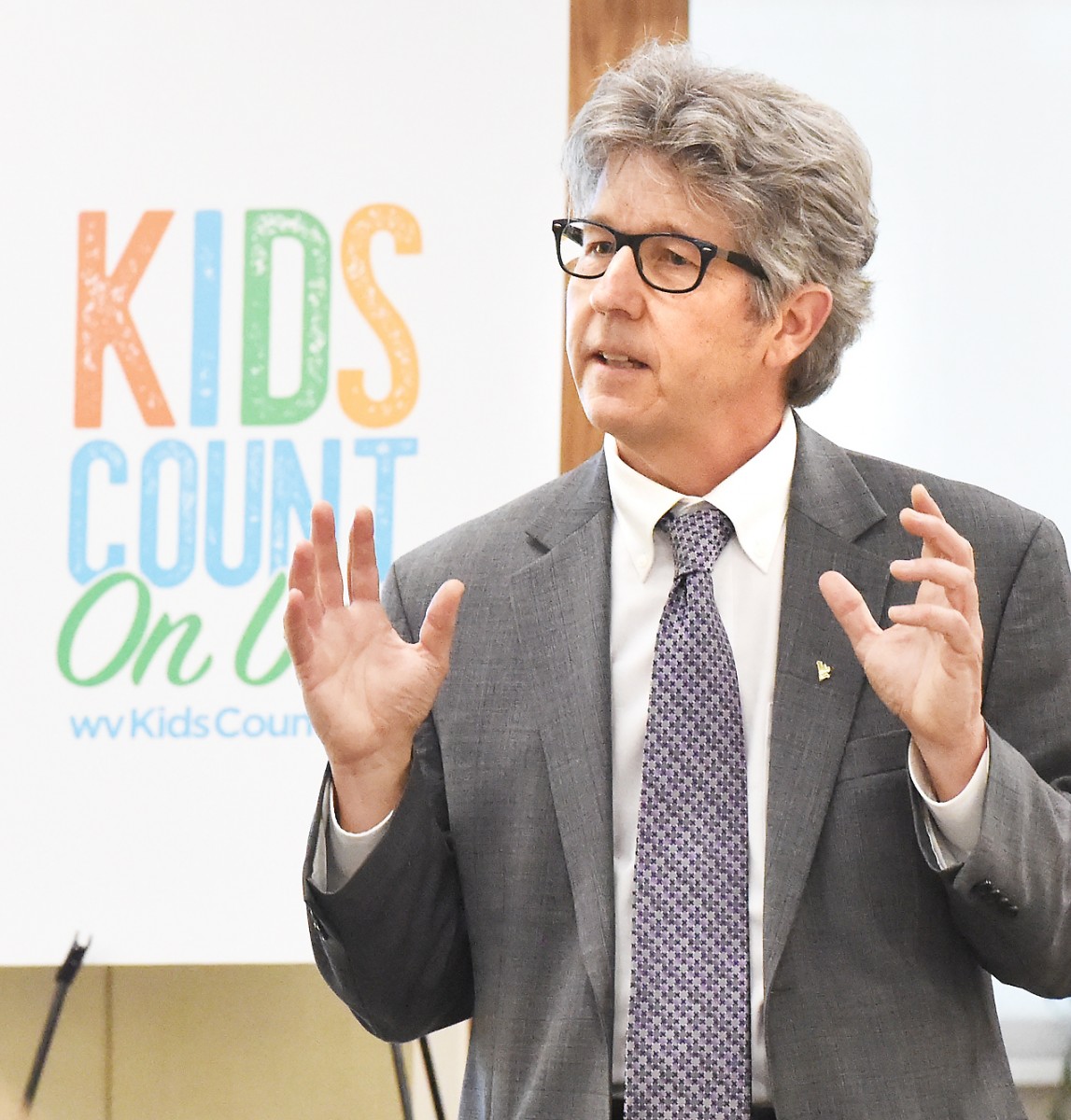MORGANTOWN — The adage, “If you build it, they will come,” does not necessarily apply to public policy.
That’s according to Christopher Plein, Eberly Family Professor for Outstanding Public Service at WVU, who co-authored the second in a series of six issue briefs on the well-being of children and families in West Virginia.
“Deciding on public policy is difficult enough,” he said at a press conference Monday, at J.W. Ruby Memorial Hospital. “The real challenges come in the implementation of that policy and realizing that when you announce a new program, even something like the children’s health insurance program, it’s a long struggle to get the word out and get people involved.”
Despite the hurdles, the issue brief — “Accounting for Enrollment Success and Considering the Challenges Ahead for Children’s Health Insurance” — details just how the state has been able spread the word and get families signed up for Medicaid and Children’s Health Insurance Program (CHIP). WV Kids Count partnered with WVU Medicine Children’s and the university’s Rockefeller School of Public Policy and Politics to release the brief.
“Tremendous work has been done to ensure that our children are covered and have equal access to health care,” said Cheryl Jones, assistant vice president for WVU Medicine Children’s and WV Kids Count board member.
The brief states that West Virginia CHIP covers children up to 300 percent of the federal poverty level and that the state provides continuous eligibility for Medicaid and CHIP throughout the year. It doesn’t require a waiting period for CHIP enrollment and extends that coverage to low-income public employees’ families. An integrated benefits eligibility determination system is capable of checking for Medicaid, CHIP, Temporary Assistance for Needy Families (TANF) and Supplemental Nutrition Assistance Prograph (SNAP) eligibility simultaneously.
“The state’s use of its SNAP beneficiary data system to reach out to potential Medicaid enrollees has been singled out as a best practice in studies of the Affordable Care Act experience,” according to the brief.
But, as Jones points out, that’s not to say that there’s no work left to be done.
“Three percent of our children still are not covered, and that equals thousands of children who struggle,” she said.
Additional challenges listed in the brief include improving the health of infants and mothers, as well as increasing the number of healthcare providers in the state and cutting costs.
“Should we rest on our laurels? Absolutely not, Plein said. “… We need to move forward and realize there are still gaps to close, and there are still gains to protect.”
Tricia Kingery, executive director of WV Kids Count, said the organization focuses on facts and building partnerships to continue to reach families.
“We use data to educate our elected officials, our policy makers [and] community leaders on where investments should be made for children and families throughout West Virginia,” she said, adding,
“We don’t do it alone. It takes a village. We’re all working together every day to do what’s best for West Virginia’s children.”




